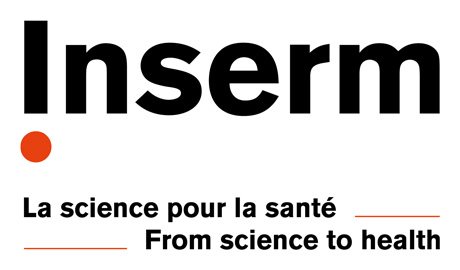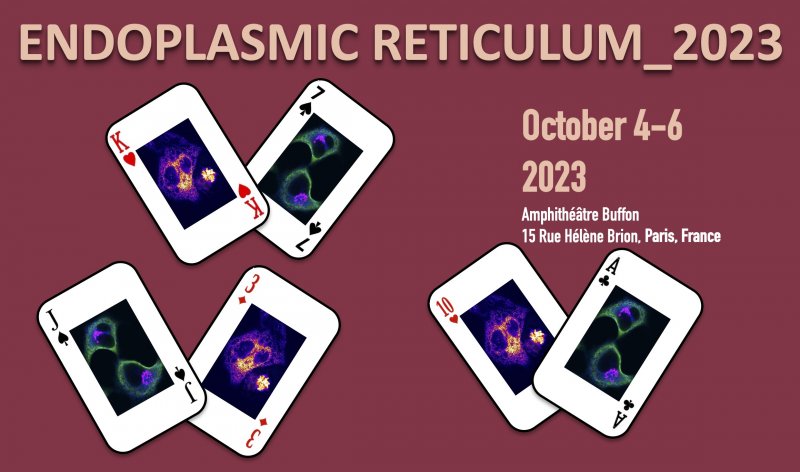






Giovanna Mallucci
![]() Altos Labs Cambridge Institute of Science, UK
Altos Labs Cambridge Institute of Science, UK
Giovanna Mallucci is a Principal Investigator at the Altos Labs Cambridge Institute of Science. She was previously van Guest Professor of Clinical Neurosciences and Center Director of the UK Dementia Research Institute at Cambridge. Her lab pioneered the understanding of the role of the UPR in neurodegenerative diseases and its therapeutic manipulation for neuroprotection.
Blanche Schwappach-Pignataro
![]() Universitätsklinikum Hamburg-Eppendorf & Center for Biochemistry and Molecular Cell Biology”, Universitätsmedizin Göttingen, Germany
Universitätsklinikum Hamburg-Eppendorf & Center for Biochemistry and Molecular Cell Biology”, Universitätsmedizin Göttingen, Germany
Blanche Schwappach is a biochemist and molecular biologist who has worked on different aspects of membrane protein biogenesis. She and her group were based on different biomedical Campuses such as San Francisco, Heidelberg, Manchester, and Göttingen. Most recently, she has taken on the role of the Dean at University Medical Center Hamburg – a chance to implement her vision for the science-oriented management of an academic institution.
Website
Benjamin Delprat
![]() Molecular Mechanisms in Dementia Montpellier, France
Molecular Mechanisms in Dementia Montpellier, France
Benjamin Delprat is Research Director at Inserm. He is working in Montpellier at Inserm Unit U1198 directed by Tangui Maurice. He is interested in neurodegenerative diseases with impaired communication between the endoplasmic reticulum and mitochondria through mitochondria-associated endoplasmic reticulum membranes (MAMs). These particular structures, fundamental for a plethora of cellular functions, are altered in the majority of neurodegenerative diseases. In close collaboration with medicinal chemists, he is developing novel sigma-1 receptor agonists, a key MAM protein, to boost the function of those MAMs in different preclinical models (human fibroblasts, zebrafish and mice). His ultimate goal is to initiate clinical trial in Wolfram syndrome.
Geneviève Dupont
![]() Unit of Theoretical Chronobiology, Brussels, Belgium
Unit of Theoretical Chronobiology, Brussels, Belgium
Geneviève Dupont is FNRS Research Director at the Unit of Theoretical Chronobiology. She is a computational cell biologist focusing on signalling pathways and gene regulatory networks. In close collaboration with experimentalists, she develops models that help investigate intracellular temporal and spatial organisation and make predictions.
Website
Carmela Giglione
![]() Protein Maturation, Cell Fate and Therapeutics, I2BC, Paris, France
Protein Maturation, Cell Fate and Therapeutics, I2BC, Paris, France
Carmela Giglione is an Italian biochemist who has made fundamental contributions in the field of protein modifications. She leads her group at the Institute for Integrative Biology of the Cell (I2BC), Université Paris Saclay, CEA, CNRS. Her major interests are essential widespread modifications affecting the N-termini of proteins, which are mainly but not only cotranslationals. In this context, she has characterized these modifications in many different organisms including parasites, and rationally designed specific potent inhibitors for the enzymes involved in these modifications. She has also developed several bioinformatics tools to disseminate data concerning these modifications. Currently she seeks to understand the nature and the biological effect of these modifications, in particular at the level of the cell partition in sub-compartments defined or not by membranes, and the impact of these modifications on the maintenance of a functional proteome. Giglione is co-founder and elected member of the managing board of the International Society of Protein Termini.
Sivan Henis-Korenblit
![]() Bar-Ilan University, Ramat-Gan, Israel
Bar-Ilan University, Ramat-Gan, Israel
Dr. Sivan Henis-Korenblit is an associate professor at Bar-Ilan University, Israel. Her main research interest is identifying the molecular mechanisms that maintain proteostasis using the model organism C. elegans. Her lab investigates abnormal proteostasis stress responses, similar to those that occur as part of the normal aging process, in the context of a whole metazoan, as it ages. Her long-term aim is to develop new ways to overcome age-related proteostasis collapse and improve lifespan and healthspan. Her research combines methodologies of molecular biology, cell biology and genetics to study ER homeostasis and ageing in C. elegans.
David Holcman
![]() Group of Data Modeling, Computational NeuroBiology and Predictive Medicine, IBENS, Paris, France
Group of Data Modeling, Computational NeuroBiology and Predictive Medicine, IBENS, Paris, France
David Holcman is an applied mathematician, biophysicist and computational biologist at École Normale Supérieure in Paris, France. He is fellow of the Churchill college and visiting Professor at the U. Of Cambridge. Holcman has more than 200 published journal articles and has registered 2 patents. He is the co-author of 3 books.
His research interests include computional methods, modeling organelles in cells, stochastic simulations, theory of cellular microworld, data modeling, neuronal networks, computational biology and neuroscience and predictive medicine. Other contributions concern methods of analyzing single particles trajectories and the development of statistical methods, polymer models, analysis and simulations to study chromatin and nucleus organization. These approaches led to several verified predictions in the life sciences such as nanocolumn organization of synapses, astrocytic protrusion penetrating synapses, potential well organization on neuronal membranes, short-term synaptic plasticity shapes Up and Down states, the nano-architecture organization underlying calcium transient and calcium-induced-calcium-release, or the flow in tubules inside the endoplasmic reticulum.
Bruno Mesmin
![]() Dynamics of lipid membranes and protein coats, IPMC, Nice, France
Dynamics of lipid membranes and protein coats, IPMC, Nice, France
Dr. Bruno Mesmin is a researcher at the Institut de Pharmacologie Moléculaire et Cellulaire, CNRS and Université Côte d’Azur at Valbonne, France. Dr Mesmin’s scientific interests are membrane biology and lipid transport. He worked on intracellular cholesterol transport and sterol transfer proteins both with Frederick R. Maxfield during his postdoc and with Bruno Antonny. Dr Mesmin and colleagues have established a new model for non-vesicular lipid traffic at membrane contact sites, in which forward lipid transport is coupled to backward transport and hydrolysis of the phosphoinositide PI(4)P. He was hired Chargé de Recherche by Inserm in 2014 and received his HDR in 2021. The central focus of his current research is the structure and function of proteins involved in organelles contacts and the associated membrane dynamics and signaling.
Ishier Raote
![]() Secreting the Extracellular Matrix, Institut Jacques Monod (IJM), Paris, France
Secreting the Extracellular Matrix, Institut Jacques Monod (IJM), Paris, France
Ishier is a group leader at the Institut Jacques Monod, Paris. He is interested in how cells control the quantity and quality of secreted proteins to assemble a dynamic extracellular matrix (ECM) that allows for tissue building, and how these mechanisms are altered in pathological conditions like fibrosis. During his postdoc, Ishier worked on how the intracellular secretory pathway is organised to allow for huge proteins like collagens to be secreted.
Fulvio Reggiori
![]() Department of Biomedicine, Aarhus University & Aarhus Institute of Advanced Studies, Denmark
Department of Biomedicine, Aarhus University & Aarhus Institute of Advanced Studies, Denmark
Fulvio Reggiori is a cell biologist and biochemist studying the regulation and molecular mechanism of autophagy using yeast Saccharomyces cerevisiae as the model system. Since is long term objective is to understand the contribution of autophagy in at least some specific physiological contexts and diseases, he is also investigating the interaction between viruses and autophagy, and the role of autophagy in preventing neurodegeneration.
Matias Simons
![]() Universität Klinikum Heidelberg, Germany
Universität Klinikum Heidelberg, Germany
Matias Simons is a Professor of Molecular Human Genetics and deputy director of the Institute of Human Genetics at the University Hospital Heidelberg, Germany. Between 2014-2019 he was the Liliane Bettencourt Chair of Developmental Biology at the Imagine Institute for Genetic Diseases in Paris and research director at INSERM. The main goal of his lab is to understand the molecular mechanisms underlying kidney disease. Guided by “real-world” human genetic data, the lab is particularly interested in exploiting renoprotective gene variants for therapeutic strategies and in understanding how kidney cells maintain fitness in stress conditions. A special focus of his lab is on lipid metabolism and its importance in the progression of proteinuric kidney diseases.

Giovanna Mallucci
![]() Altos Labs Cambridge Institute of Science, UK
Altos Labs Cambridge Institute of Science, UK
Giovanna Mallucci is a Principal Investigator at the Altos Labs Cambridge Institute of Science. She was previously van Guest Professor of Clinical Neurosciences and Center Director of the UK Dementia Research Institute at Cambridge. Her lab pioneered the understanding of the role of the UPR in neurodegenerative diseases and its therapeutic manipulation for neuroprotection.
Blanche Schwappach-Pignataro
![]() Universitätsklinikum Hamburg-Eppendorf & Center for Biochemistry and Molecular Cell Biology”, Universitätsmedizin Göttingen, Germany
Universitätsklinikum Hamburg-Eppendorf & Center for Biochemistry and Molecular Cell Biology”, Universitätsmedizin Göttingen, Germany
Blanche Schwappach is a biochemist and molecular biologist who has worked on different aspects of membrane protein biogenesis. She and her group were based on different biomedical Campuses such as San Francisco, Heidelberg, Manchester, and Göttingen. Most recently, she has taken on the role of the Dean at University Medical Center Hamburg – a chance to implement her vision for the science-oriented management of an academic institution.
Website
Benjamin Delprat
![]() Molecular Mechanisms in Dementia Montpellier, France
Molecular Mechanisms in Dementia Montpellier, France
Benjamin Delprat is Research Director at Inserm. He is working in Montpellier at Inserm Unit U1198 directed by Tangui Maurice. He is interested in neurodegenerative diseases with impaired communication between the endoplasmic reticulum and mitochondria through mitochondria-associated endoplasmic reticulum membranes (MAMs). These particular structures, fundamental for a plethora of cellular functions, are altered in the majority of neurodegenerative diseases. In close collaboration with medicinal chemists, he is developing novel sigma-1 receptor agonists, a key MAM protein, to boost the function of those MAMs in different preclinical models (human fibroblasts, zebrafish and mice). His ultimate goal is to initiate clinical trial in Wolfram syndrome.
Geneviève Dupont
![]() Unit of Theoretical Chronobiology, Brussels, Belgium
Unit of Theoretical Chronobiology, Brussels, Belgium
Geneviève Dupont is FNRS Research Director at the Unit of Theoretical Chronobiology. She is a computational cell biologist focusing on signalling pathways and gene regulatory networks. In close collaboration with experimentalists, she develops models that help investigate intracellular temporal and spatial organisation and make predictions.
Website
Carmela Giglione
![]() Protein Maturation, Cell Fate and Therapeutics, I2BC, Paris, France
Protein Maturation, Cell Fate and Therapeutics, I2BC, Paris, France
Carmela Giglione is an Italian biochemist who has made fundamental contributions in the field of protein modifications. She leads her group at the Institute for Integrative Biology of the Cell (I2BC), Université Paris Saclay, CEA, CNRS. Her major interests are essential widespread modifications affecting the N-termini of proteins, which are mainly but not only cotranslationals. In this context, she has characterized these modifications in many different organisms including parasites, and rationally designed specific potent inhibitors for the enzymes involved in these modifications. She has also developed several bioinformatics tools to disseminate data concerning these modifications. Currently she seeks to understand the nature and the biological effect of these modifications, in particular at the level of the cell partition in sub-compartments defined or not by membranes, and the impact of these modifications on the maintenance of a functional proteome. Giglione is co-founder and elected member of the managing board of the International Society of Protein Termini.
Sivan Henis-Korenblit
![]() Bar-Ilan University, Ramat-Gan, Israel
Bar-Ilan University, Ramat-Gan, Israel
Dr. Sivan Henis-Korenblit is an associate professor at Bar-Ilan University, Israel. Her main research interest is identifying the molecular mechanisms that maintain proteostasis using the model organism C. elegans. Her lab investigates abnormal proteostasis stress responses, similar to those that occur as part of the normal aging process, in the context of a whole metazoan, as it ages. Her long-term aim is to develop new ways to overcome age-related proteostasis collapse and improve lifespan and healthspan. Her research combines methodologies of molecular biology, cell biology and genetics to study ER homeostasis and ageing in C. elegans.
David Holcman
![]() Group of Data Modeling, Computational NeuroBiology and Predictive Medicine, IBENS, Paris, France
Group of Data Modeling, Computational NeuroBiology and Predictive Medicine, IBENS, Paris, France
David Holcman is an applied mathematician, biophysicist and computational biologist at École Normale Supérieure in Paris, France. He is fellow of the Churchill college and visiting Professor at the U. Of Cambridge. Holcman has more than 200 published journal articles and has registered 2 patents. He is the co-author of 3 books.
His research interests include computional methods, modeling organelles in cells, stochastic simulations, theory of cellular microworld, data modeling, neuronal networks, computational biology and neuroscience and predictive medicine. Other contributions concern methods of analyzing single particles trajectories and the development of statistical methods, polymer models, analysis and simulations to study chromatin and nucleus organization. These approaches led to several verified predictions in the life sciences such as nanocolumn organization of synapses, astrocytic protrusion penetrating synapses, potential well organization on neuronal membranes, short-term synaptic plasticity shapes Up and Down states, the nano-architecture organization underlying calcium transient and calcium-induced-calcium-release, or the flow in tubules inside the endoplasmic reticulum.
Bruno Mesmin
![]() Dynamics of lipid membranes and protein coats, IPMC, Nice, France
Dynamics of lipid membranes and protein coats, IPMC, Nice, France
Dr. Bruno Mesmin is a researcher at the Institut de Pharmacologie Moléculaire et Cellulaire, CNRS and Université Côte d’Azur at Valbonne, France. Dr Mesmin’s scientific interests are membrane biology and lipid transport. He worked on intracellular cholesterol transport and sterol transfer proteins both with Frederick R. Maxfield during his postdoc and with Bruno Antonny. Dr Mesmin and colleagues have established a new model for non-vesicular lipid traffic at membrane contact sites, in which forward lipid transport is coupled to backward transport and hydrolysis of the phosphoinositide PI(4)P. He was hired Chargé de Recherche by Inserm in 2014 and received his HDR in 2021. The central focus of his current research is the structure and function of proteins involved in organelles contacts and the associated membrane dynamics and signaling.
Ishier Raote
![]() Secreting the Extracellular Matrix, Institut Jacques Monod (IJM), Paris, France
Secreting the Extracellular Matrix, Institut Jacques Monod (IJM), Paris, France
Ishier is a group leader at the Institut Jacques Monod, Paris. He is interested in how cells control the quantity and quality of secreted proteins to assemble a dynamic extracellular matrix (ECM) that allows for tissue building, and how these mechanisms are altered in pathological conditions like fibrosis. During his postdoc, Ishier worked on how the intracellular secretory pathway is organised to allow for huge proteins like collagens to be secreted.
Fulvio Reggiori
![]() Department of Biomedicine, Aarhus University & Aarhus Institute of Advanced Studies, Denmark
Department of Biomedicine, Aarhus University & Aarhus Institute of Advanced Studies, Denmark
Fulvio Reggiori is a cell biologist and biochemist studying the regulation and molecular mechanism of autophagy using yeast Saccharomyces cerevisiae as the model system. Since is long term objective is to understand the contribution of autophagy in at least some specific physiological contexts and diseases, he is also investigating the interaction between viruses and autophagy, and the role of autophagy in preventing neurodegeneration.
Matias Simons
![]() Universität Klinikum Heidelberg, Germany
Universität Klinikum Heidelberg, Germany
Matias Simons is a Professor of Molecular Human Genetics and deputy director of the Institute of Human Genetics at the University Hospital Heidelberg, Germany. Between 2014-2019 he was the Liliane Bettencourt Chair of Developmental Biology at the Imagine Institute for Genetic Diseases in Paris and research director at INSERM. The main goal of his lab is to understand the molecular mechanisms underlying kidney disease. Guided by “real-world” human genetic data, the lab is particularly interested in exploiting renoprotective gene variants for therapeutic strategies and in understanding how kidney cells maintain fitness in stress conditions. A special focus of his lab is on lipid metabolism and its importance in the progression of proteinuric kidney diseases.